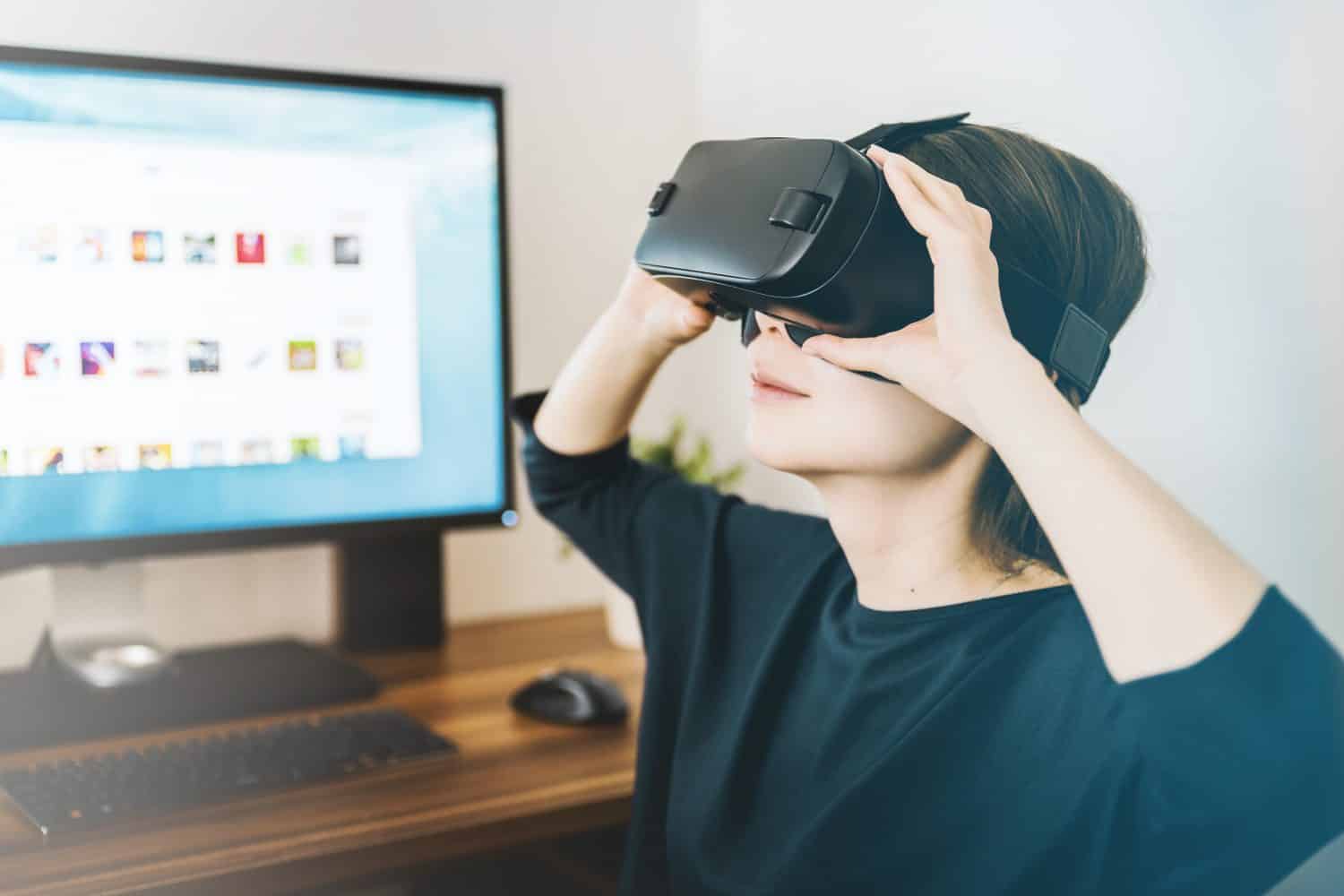
At Trafalgar Addiction Treatment Centres, we incorporate the most advanced, evidence-based technology available in our residential treatment programs for alcohol addiction treatment.
Alongside methods such as dialectical behavioural therapy and cognitive behavioural therapy, we offer virtual reality therapy (Cue-Exposure) using virtual reality hardware. This evidence-based treatment method has become increasingly useful in alcohol addiction treatment in recent years. Experts have identified the most effective ways in which to leverage the technology.
In cue-exposure therapy using virtual reality technology, clients work with their therapists to identify relapse triggers. They identify specific recovery challenges and analyse their impacts on the client. Our therapists use headsets to create scenarios that replicate triggering situations using visuals, sounds and scents. Clients can then work with their therapists to discuss how the scenarios affect them. They can develop methods for coping with these types of scenarios in real life. Exposure to these scenarios also helps clients to build tolerance to relapse triggers, cravings and distressing situations. This prepares them to cope with these situations when they encounter them outside of treatment.
When incorporated into a holistic, evidence-based treatment program, virtual reality cue-exposure treatment can be a vital support to people working towards lasting recovery. Trafalgar was recently featured in a Global News Canada piece on the use of virtual reality technology in alcohol addiction treatment. This blog discusses how the treatment functions, how it benefits clients, and the way in which Trafalgar uses it in our programs.
How Virtual Reality Works
During residential addiction treatment, clients are separated from scenarios likely to trigger relapse. However, once they return to regular life, they may encounter these sorts of scenarios regularly. Common relapse triggers often include settings such as social gatherings, restaurants or bars. They also might involve certain people or environments in a person’s life who they associate with their addicted behaviour. Often, situations of a particular nature, such as stressful interactions or celebrations, can be triggering for clients. We tailor our VR therapy specifically to the identified triggers of each client, creating the kind of scenarios that might be particularly relevant to them.
Benefits of Virtual Reality Therapy
Addiction treatment helps clients to identify relapse triggers and to develop methods for dealing with them. Virtual reality therapy can help people to recognize these triggers by reproducing the kinds of situations in which they may arise. Transferring methods for dealing with relapse triggers into everyday life outside of treatment can be challenging. Virtual reality therapy can be extremely beneficial in this process. It allows people to inhabit triggering scenarios in a convincing manner. The way the simulations affect the senses make these scenarios truly immersive and realistic.
Is There Danger in VR Use?
While it can be difficult at first to experience the triggering VR scenarios, the client builds resistance gradually. This means that a client will avoid excessive discomfort during the early phases of the treatment. Any distress or anxiety caused by VR treatment will also benefit the client by allowing them to develop their tolerance for the triggers. They are better equipped to cope with these triggers when they encounter them in real life. They are better prepared to manage any cravings or distress that they feel.
Clients can also discuss how exposure to relapse triggers or distressing situations affected them with their therapist. This helps to identify the underlying causes of their reactions and developing methods for dealing with them. They can then practice these methods in virtual reality scenarios, in a controlled environment. This helps to reinforce all the skills and coping mechanisms developed in treatment. This makes VR treatment an exceptional asset in working towards lasting recovery.
Our VR Use
Our therapists incorporate VR technology into sessions in a manner which complements the other methods we use. These include cognitive behavioural therapy and dialectical behavioural therapy. The scenarios replicate the kind of situations clients might discuss with their therapists as being problematic. Working through these kinds of scenarios helps clients to gradually build their understanding of triggers and their resistance to them. While discussing and envisioning triggering scenarios can be a productive method of developing resistance to them, the fully immersive experience provided by VR is much more immersive.
Our Methods
Our VR therapy does not only use visual cues. It also features sounds and scents to make the experience as immersive and convincing as possible. The smell of alcohol or sounds of a bar trigger responses in clients that closely replicate real-life responses. Therapists can also design interactions for clients that might function as triggers, such as a conversation with a friend encouraging them to have a drink or come to an event where alcohol will be present.
VR Helps Find Triggers of Addiction
When clients encounter a situation they find triggering or distressing, they can immediately work through it with their therapist. This makes situations of this type less daunting when faced in real life. This also works to reduce anxieties that clients may have about their recovery, as they can directly confront the kind of situations they are worried about. Having a clear protocol and methods they have practiced makes the prospect of triggering situations, and the situations themselves, considerably less daunting. This provides clients with a substantial benefit as they work towards lasting recovery.
If you have any questions about the use of virtual reality technology in cue-exposure therapy for addiction treatment, contact Trafalgar Addiction Treatment Centres today.





